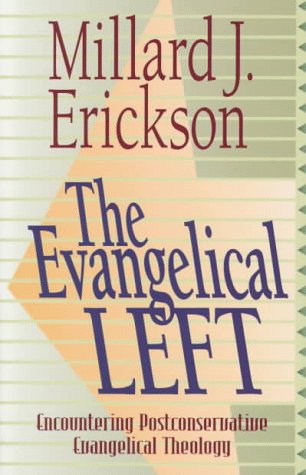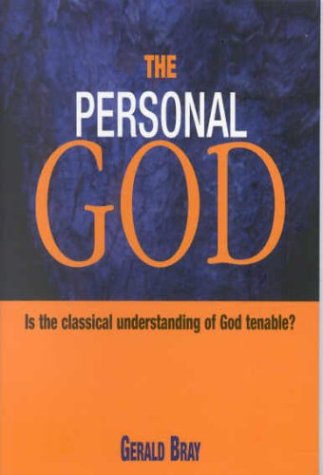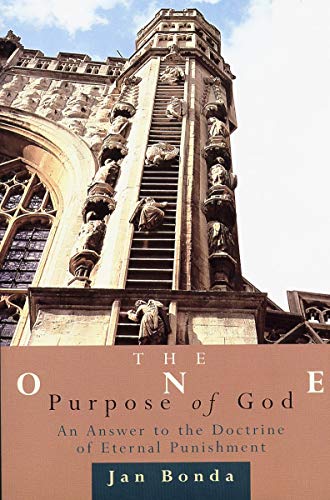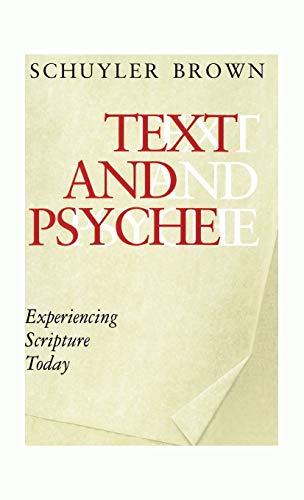Volume 25 - Issue 1
Life, Theology, and All that Jazz
By Carl TruemanAsk any jazz buff about the most important moments in the history of music and you will almost certainly be told that the early recordings of Jelly Roll Morton, the Miles Davis’ album, The Birth of the Cool, the arrival of Charlie ‘Bird’ Parker on sax and Thelonious Monk on piano in the late forties, and the innovative work of John Coltrane in the fifties and sixties are the central events which define the genre. In addition, you will also almost certainly be referred to a series of recordings from the twenties by two combos whose now legendary line-up included the then little-known cornet player, Louis Armstrong. Indeed, these so-called ‘Hot Fives’ and ‘Hot Sevens’ perhaps constitute the two most important musical events in jazz history—the technical brilliance of the Armstrong improvisations simply moved jazz to a new plane and opened up whole new vistas of experimentation which effectively meant that nothing was ever to be quite the same again.
Given the watershed nature of these sessions, I was interested recently to hear Wynton Marsalis, probably the greatest living jazz musician, discussing the music of Armstrong and making what was to me a surprising but almost certainly accurate observation. Yes, Marsalis said, the Hot Fives and Hot Sevens changed the face of jazz forever; but any reasonably accomplished musician could listen to the tracks, follow Armstrong’s breathing and fingering techniques, and then go off to reproduce all of the solos just as Louis had himself played them; however, Marsalis continued, if one tried to do the same with the Armstrong recordings from the late fifties—for example, his classic 1959 version of ‘When You’re Smiling’—one could again learn the breathing and fingering, but, try as one might, one could not reproduce the sound that the great trumpeter achieved in these sessions. The reason? By the late fifties, Marsalis said, Armstrong had learned not just to play brilliant jazz; he had also learned to live it, to feel it, to breathe it. The notes and the improvisations on these recordings were more than just elaborate technical exercises; they were saturated in Armstrong’s own life and experiences; they had a tone and a timbre, a quality and a texture, which could not be captured simply by following the movements of his fingers and his lungs. They derived rather from the inner qualities of the man himself.
What Marsalis said about Armstrong impressed me deeply—not simply because he seemed to have hit the nail on the head regarding Armstrong’s development as a musician, but also because what he said about his music seemed to have a certain relevance to theology and to theological education. Much of educational culture, at least in Britain, has tended over the last twenty years to identify learning with the acquisition of skills, techniques, and information. Now, of course, education has never been less than this—schools have always taught people to read, write, do arithmetic etc. In the past, however, at least in intention, acquisition of skills and information was not seen as the be-all-and-end-all of the educational process, but simply as one particular part of a larger whole. The wider intention was that of producing men and women who were capable of being mature and useful members of society, who were prepared for the service of others, and whose very existence as such was seen as a benefit to society at large and not just to themselves. This is to an extent the vision captured in the great book of John Henry Newman, The Idea of a University. Yet it is a vision which has sadly dropped from the agenda of modern pragmatic educational theorists with their reductionist free-market view of society. Now, schools and universities are regarded simply as training grounds for individualist entrepreneurs rather than contexts for the maturing of balanced and rounded members of society with a usefulness beyond mere wealth creation.
The change in the cultural perception of what education is all about has, inevitably, effected theology. There was a time when university theology faculties and seminaries were specifically intended as places where students could not only learn about theology in its deepest technical sense but also where the college culture provided a place where men and women were able to develop in terms of their own spiritual maturity as they prepared for lives of church service. Sadly, this is often no longer the case, particularly at universities but—and here I confess my ignorance—quite possibly at seminaries as well. The modular system, with its emphasis upon skills, techniques, and information, has meant that young theologians can, if they wish, become highly proficient at the technicalities of their subjects and do exceptionally well in examinations while failing to mature as Christians. This is often simply because their willingness to read and learn from books and lecturers is not matched by their willingness to pray and to serve within the context of the church.
Given the nature and purpose of theology, this is a most serious situation. As the music of Louis Armstrong in the fifties cannot simply be reduced to breathing and fingering techniques but actually gains its true greatness because of the life and experience of the man playing it, so theology cannot be reduced simply to using the correct doctrinal vocabulary and knowing the correct exegetical techniques for any given biblical passage—though we should all strive to make sure that our ambition is never less than this. Being a theologian is, so to speak (and I do hate using such political clichés!) a lifelong learning experience. The whizz kid with the First in Theology from Oxford has achieved something truly impressive, but must remember that the ability to memorise great chunks of theological textbooks and write in a lucid, original, and pleasant way does not in itself qualify him or her to be of great service to the church. Theology needs to lived out and applied, tried and tested, worked at in the context of daily church life, if it is to be at all useful in bringing us to spiritual maturity. There should be a tone and a timbre to our theology which only a faithful and consistent life of Christian service for the church can provide.
How is this to be done? First, one could do worse than read Newman’s Idea (which is still in print). Here one will find a vision of education fundamentally at odds with late twentieth century pragmatism and far more conducive to the kind of personal development which education in general, and theological training in particular, should embody. Then, from an evangelical perspective, and pitched specifically at theological students, the wonderful little book of the great Helmut Thielicke, A Little Exercise for Young Theologians(also still in print), is a stimulating and provocative statement of how a trainee theologian should perceive his or her place and task within the church. The great lessons to be drawn from Thielicke are those concerning the need for humility and for service. For the Christian, increased knowledge is never to be used as an excuse for lording it over others or avoiding the daily routines of individual Christian and corporate church life. Knowledge in itself, without the life to back it up, counts for nothing. In addition, from those to whom much has been given, much will be expected; and with great privilege comes great responsibility. Thus, the great privilege of theological education brings with it even great responsibilities of servanthood in the church. Indeed, failure to be involved in a church and in the day-to-day mundane business of running a church is a recipe for disaster. Having taught at university for seven years, I have seen numerous individuals come unstuck while studying theology and I can honestly say that it is rarely what they are taught that does the damage, however unbiblical some of it may be. No. The problem almost always starts with a neglect of the little things in the Christian life: church attendance; personal prayer and Bible reading; and fellowship with older, often less learned, but invariably more mature, Christians. Because Christian theology is only part of being a Christian, neglect of the more practical aspects of obedience and service inevitably starves the spirit of the theologian who is willing to read, discuss and debate theology till the early hours of the morning yet who has no time to meditate on God’s word, to pray and to have fellowship with others.
Compared to the technical excitement of the lecture theatre, of course, the local church can often seem a dull and uninspiring place. Yet it is there that Christians enjoy their closest fellowship with each other and with the Lord, and it is there that one finds the proper context for growing into true spiritual maturity. Christian Unions, hall fellowship groups, Bible studies—all have their place, but none is a substitute for church. The Sunday service may sometimes be overlong and tedious, but it is the primary place where Christians meet to worship the Lord and remember his saving work at the Lord’s Table. The church prayer meeting may not be the appropriate place to raise questions about the Synoptic Problem or the Documentary Hypothesis, but it is the place to do serious business with God as a people, and to grow to spiritual maturity under the watchful eyes of those who may not be so technically accomplished, yet who perhaps have the Christian experience of joy or suffering which sets them apart and gives them a wisdom which cramming for university finals cannot on its own achieve. Teaching Sunday school may also not be the first choice of the First-bearing Oxbridge graduate—but it might well be the context in which all that vast and impressive knowledge finds its most immediate and helpful application.
Finally, we should all strive for humility in our work. Those young jazz trumpeters are seriously mistaken who think that, because they have the Armstrong solos of the Hot Fives and Hot Sevens by heart, they are actually greater than Satchmo; let them turn to the discs of the late fifties for a quick lesson in humility; let them spend time mulling over those intangible and unique qualities of Armstrong the man which made Armstrong the musician so influential. So, too, the young theologian who is tempted to look down upon those who cannot argue as eloquently or as precisely as he or she can might do well to spend a little time in the company of an older Christian who has served the Lord faithfully for years, or even to turn to the pages of the NT, to remind themselves that, while Christianity is never less than doctrinal, it is also always so much more; let them spend time mulling over the intangible spiritual quality that only a close walk with God can give. Let us, then, focus not just on acquiring theological techniques and information but on developing our theological life and character as well. There is no special secret involved in this; on the contrary, the steps are very simple: get involved in your local church wherever there is a need and you have something to offer—even if it is just making the coffee on a Sunday; support the Sunday services; pray regularly on your own, with a prayer partner, and at the church meeting; and see your studies as an opportunity for service, not for self-promotion. In this way, you will move beyond mere emulation of the words and phrases of the theological giants of the past and present and go on to capture something of the living, passionate, devotional texture of their theology as well.
Carl Trueman
Carl Trueman is Professor of Biblical and Religious Studies at Grove City College in Grove City, Pennsylvania.






